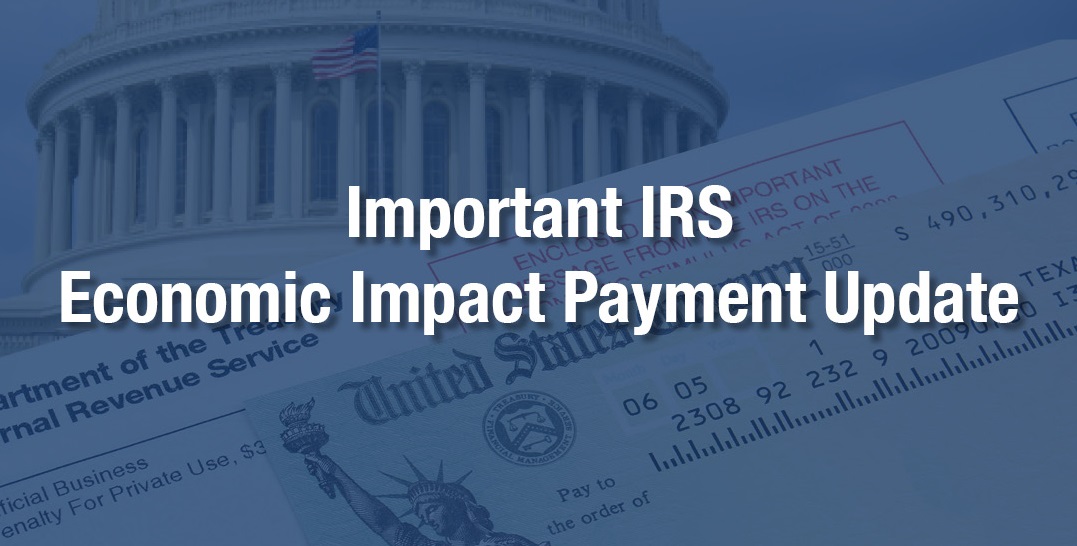A second round of stimulus checks, or Economic Impact Payments (EIP), are currently being disbursed by the Treasury Department. This page is a resource to provide our customers with up-to-date and accurate information.
Economic Impact Payment Updates
If you are EIP-eligible, here are a few things to note:
- EIP Direct Deposits began posting to accounts earlier this week.
- Checks will be printed and delivered to the US Post Office each day except Sundays and will continue for the next 4-6 weeks. All checks will be dated January 6th, even those printed after January 6th.
- Pre-paid debit cards were issued January 4th.
We are notifying our customers that are EIP eligible the amount and date their EIP will be deposited. The IRS has created a web portal to check the status of your payment. If you haven't received an EIP, received a different amount than you were expecting, or to check the status of your payment, please visit the IRS EIP Portal.
Unfortunately, First Financial Bank cannot provide any details regarding eligibility, status of payment, or deposit date. Please use the IRS website for more information related to your stimulus payment.
Please remember, criminals will use these uncertain times to prey on unsuspecting victims, and we want to help protect you against common scams and fraudulent schemes. If you receive a phone call, text message, or email asking for your account information, passwords, or PIN numbers, please ignore it and contact our Customer Care Team at 855-660-5862 to verify its authenticity.
The American Bankers Association provides some details of activity to be on the lookout for:
Use suspicious phrases.
The IRS has stated that the official term for payments is “economic impact payment.” If you receive any correspondence using the phrases “stimulus check” or “stimulus payment,” it may be a clue that a fraudster trying to take your cash.
Send “phishy” emails or texts.
Government agencies will never correspond through email or text message. If you receive a message with a link asking you to register online in order to receive your economic impact payment, you are most likely being scammed. Do not click on the link.
Make bogus phone calls and texts asking for personal information.
Consumers do not need to take any action to receive their economic impact payment. If you receive a phone call or text from someone claiming to be from your bank or a government agency asking to verify your personal information, hang up immediately and call your bank or report it to the IRS.
Mail a phony check.
Some scammers will send out fake checks—with either the correct or incorrect economic impact payment amount—and require the recipient to verify personal information in order to cash it. The only mail correspondence you should receive will come from the IRS in the form of a letter with information on how the economic impact payment was made and how to report any failure to receive the payment.
